Allegorical Portrait of Cardinal Alessandro Albani
Oil on canvas, 30 x 22 cm
Provenance:
Painted in Rome during the early months of 1728; its trace was lost thereafter.
Private collection, France
Bibliography: Anatole de Montaiglon, Correspondance des directeurs de l’Académie de France, Paris, 17 vol, 1897-1908, t. 7, p. 393, 400 and 454; Fr. Marandet, "Nicolas Delobel, painter of allegories: six new testimonies," Les Cahiers d'Histoire de l'Art, 2016, p. 27.
Nicolas Delobel is one of the pupils of Louis de Boullogne whose painted and drawn production is gradually being rediscovered. Born in Paris in 1693, Delobel received solid training under Boullogne, which led him to win the "second prize" of the Royal Academy of Painting and Sculpture in 1717. Six years later, in 1723, he joined the French Academy in Rome, then directed by Nicolas Vleughels. During his stay in Rome, he executed numerous copies of works, as was the tradition for the pensioners, while distinguishing himself by his talent for allegories.
The allegorical portrait of Cardinal Alessandro Albani, executed in 1728, is a perfect example of this. This painting, commissioned by Albani himself, shows Delobel's finesse and mastery in the use of colors and allegorical composition. The canvas depicts Minerva, the protector of the arts, revealing a portrait of the cardinal, accompanied by a small genius of the arts. This composition testifies to the influence of his master, Louis de Boullogne, and the importance of mythological and allegorical themes in his work.
Delobel's work is also marked by a certain formal softness and warm tones, as evidenced by this oil on canvas. His ability to integrate allegorical elements into complex compositions places him among the most talented artists of his time in this genre. Moreover, the painting shows direct influences from the works he copied during his stay in Rome, such as those by Titian.
For more details and a complete expertise, François Marandet's report is available on request.


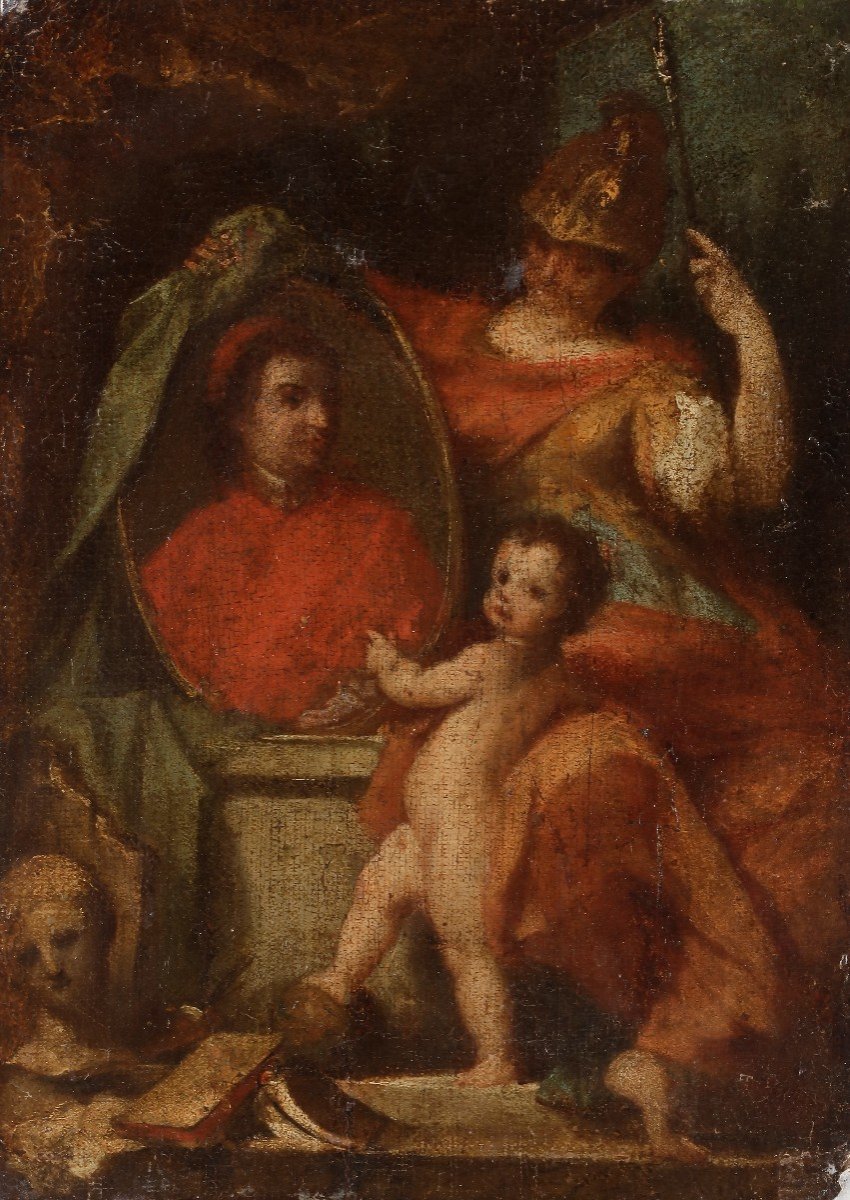












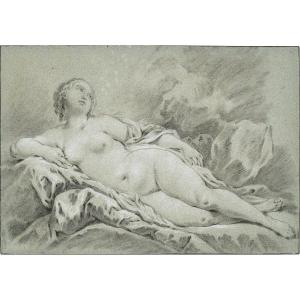

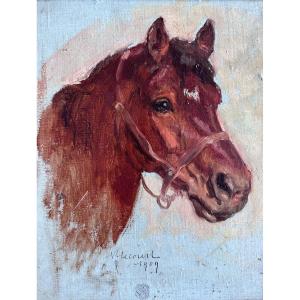
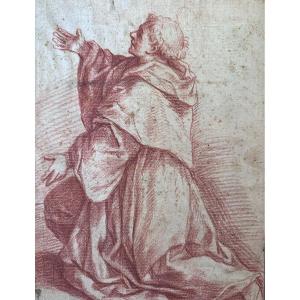
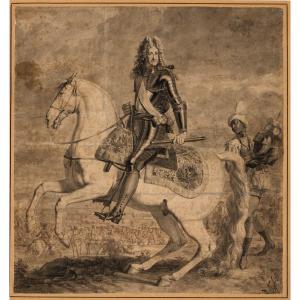








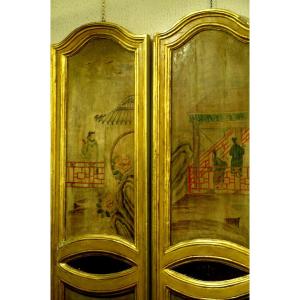







 Le Magazine de PROANTIC
Le Magazine de PROANTIC TRÉSORS Magazine
TRÉSORS Magazine Rivista Artiquariato
Rivista Artiquariato